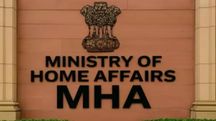Delhi HC to address Kejriwal's plea against ED summons in excise case today
Delhi High Court is to deliberate on Arvind Kejriwal's challenge against ED summonses concerning a money laundering investigation related to an excise policy. The hearing is scheduled for April 22 following Kejriwal's arrest by the ED on March 21.
 Arvind Kejriwal, Delhi High Court, Enforcement Directorate, Money Laundering, Legal Challenge, Excise Policy, Prevention of Money Laundering Act
Arvind Kejriwal, Delhi High Court, Enforcement Directorate, Money Laundering, Legal Challenge, Excise Policy, Prevention of Money Laundering ActThe Delhi High Court is set to deliberate on Chief Minister Arvind Kejriwal's legal challenge against summonses issued by the Enforcement Directorate (ED) concerning a money laundering investigation related to an excise policy. Scheduled for April 22, this development comes in the wake of Kejriwal's arrest by the agency on March 21, subsequent to the high court's denial of interim protection from coercive measures.
At the heart of Kejriwal's petition is the questioning of the constitutional validity of specific provisions within the Prevention of Money Laundering Act, particularly concerning arrest, interrogation, and bail. The hearing will be overseen by a bench comprising Justice Suresh Kumar Kait and Justice Manoj Jain. Kejriwal initiated legal proceedings after receiving the ninth summons from the ED, mandating his appearance on March 21.
The court, on March 20, directed the ED to provide its response regarding the maintainability of Kejriwal's petition. Despite Kejriwal's plea for protection against arrest, the court declined interim relief "at this stage." Consequently, Kejriwal was apprehended by the ED later that day and is presently under judicial custody.
The ED has alleged that individuals associated with Kejriwal were involved in formulating the now-defunct excise policy, allegedly conferring undue advantages upon them in exchange for kickbacks directed towards the Aam Aadmi Party (AAP). Kejriwal's petition raises various concerns, including the applicability of anti-money laundering laws to political parties. It contends that the arbitrary procedures outlined in the PMLA are being exploited to skew the electoral landscape in favor of the ruling party at the national level.
Describing Kejriwal as a prominent critic of the ruling party and a member of the INDIA bloc, the petition suggests that the ED, operating under the auspices of the Union government, has been "weaponized" for political ends. This intricate legal battle not only addresses the specifics of Kejriwal's case but also delves into broader questions concerning the intersection of law, politics, and governance in India.
Copyright©2025 Living Media India Limited. For reprint rights: Syndications Today









